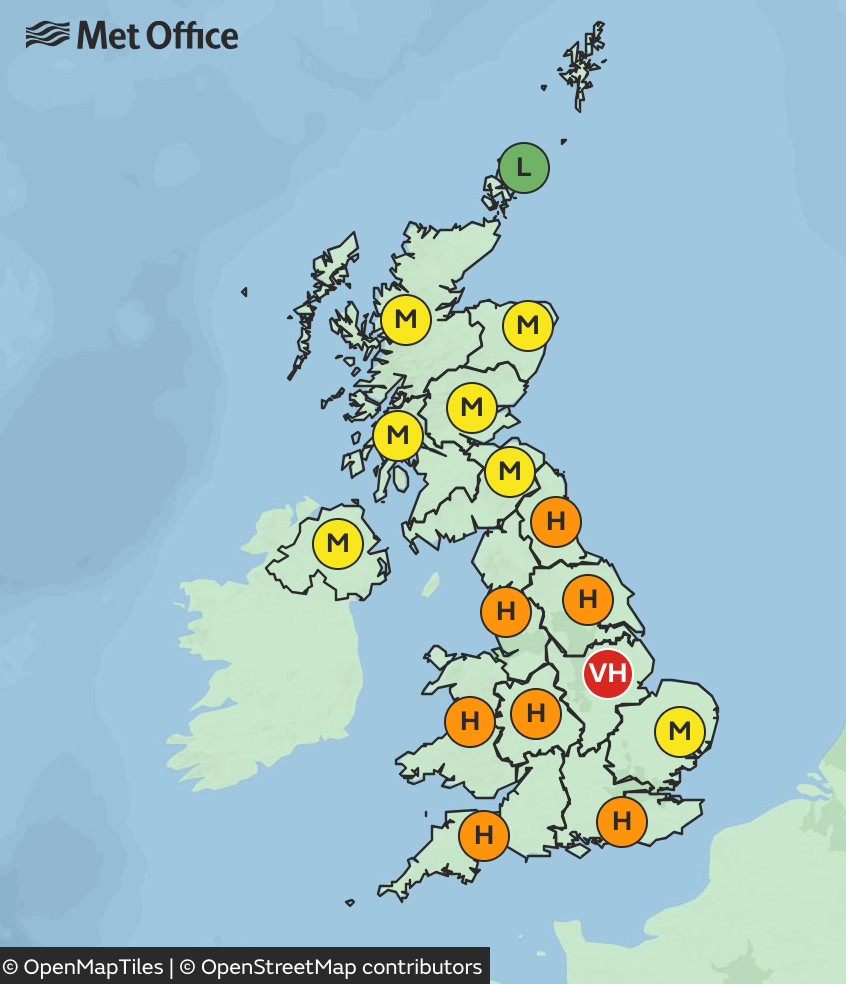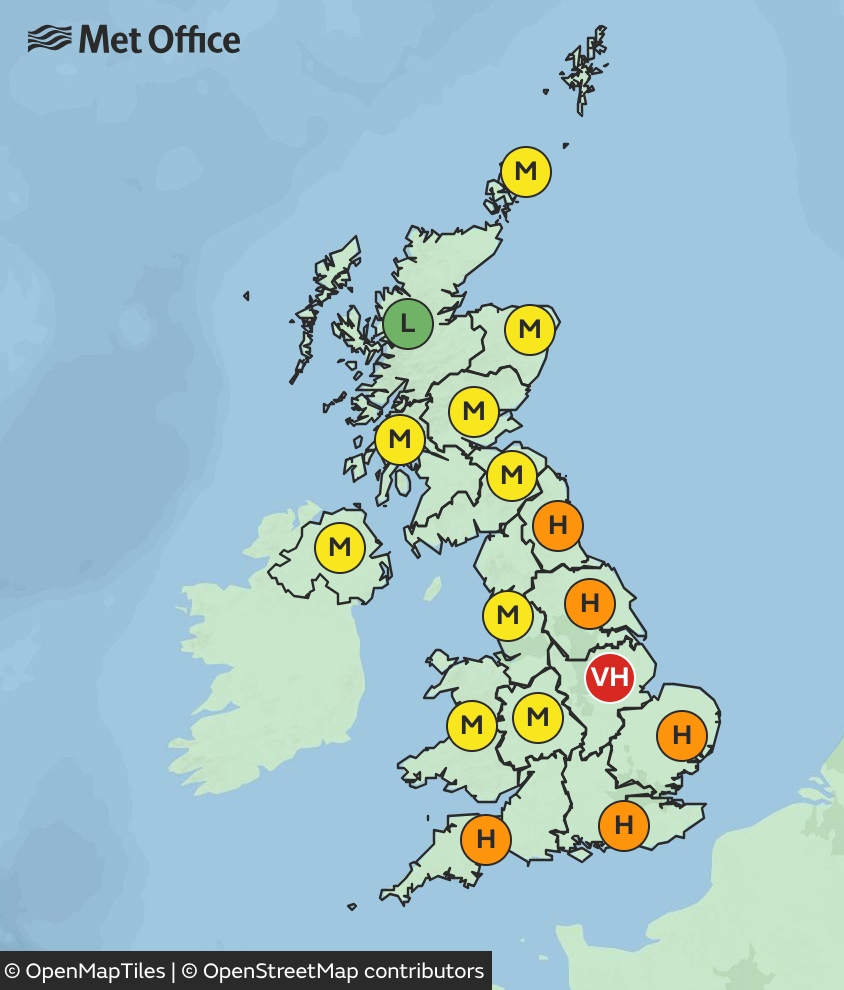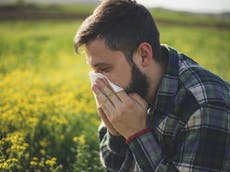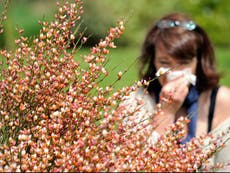Mapped: Pollen hotspots this weekend as Met Office issues hay fever warning
Pollen levels are set to skyrocket across England and Wales this weekend
Your support helps us to tell the story
From reproductive rights to climate change to Big Tech, The Independent is on the ground when the story is developing. Whether it's investigating the financials of Elon Musk's pro-Trump PAC or producing our latest documentary, 'The A Word', which shines a light on the American women fighting for reproductive rights, we know how important it is to parse out the facts from the messaging.
At such a critical moment in US history, we need reporters on the ground. Your donation allows us to keep sending journalists to speak to both sides of the story.
The Independent is trusted by Americans across the entire political spectrum. And unlike many other quality news outlets, we choose not to lock Americans out of our reporting and analysis with paywalls. We believe quality journalism should be available to everyone, paid for by those who can afford it.
Your support makes all the difference.Pollen levels are set to increase across the UK this weekend, the Met Office has said as it issued a warning to hay fever sufferers.
On Saturday 1 July, pollen levels are set to skyrocket in England and Wales, with the alert level in East Midlands moving from moderate to a rare “very high”, a warning which will remain in place until Monday.
Elsewhere, South West England, London and South East England, Wales, West Midlands, North West England, Yorkshire and Humber and North East England are all set to increase to high.

The majority were marked moderate on Friday, with the exception of London and South East England, which were already high, and the North West, in the green with a low warning.
On Sunday 2 July, some areas will experience a slight decrease in pollen levels, with Wales, West Midlands and North West England dipping back down to a moderate warning.
Elsewhere, the alert in the East of England will move from moderate on Saturday to high on Sunday.
Meanwhile, Scotland and Northern Ireland is set to experience lower levels, with a moderate alert in place on Saturday across all areas bar Orkney and Shetland, which will stay low.
On Sunday, the northernmost area will creep up ever so slightly to moderate, swapping with Highlands and Eilean Siar as it dips down to the green.

The UK is currently coming to the end of grass pollen season, which typically lasts from mid-May until July. Hay fever season begins in late March with tree pollen, with the third phase – weed pollen – released at any time, but usually enduring from the end of June until September.
The start of hay fever season and the movement between the three phases can also vary depending on geographical location, with the north of the UK typically enjoying a later start and shorter season. Cities also tend to have lower pollen counts than the countryside, as do coastal areas compared to places inland.
Earlier in June, the Met Office reported that there is a “growing consensus” that climate change will impact the UK’s pollen season, worsening conditions for hay fever sufferers.
Noting that incidences of respiratory allergies are at an all-time high, the new study stated that most of the changes to pollen seasons it identified “were caused by climate drivers of increasing temperature and sunshine”.
“There’s a growing scientific consensus that climate change will impact the pollen season in the UK. It could result in longer pollen seasons,” a Met Office spokesperson told The Guardian.





Join our commenting forum
Join thought-provoking conversations, follow other Independent readers and see their replies
Comments